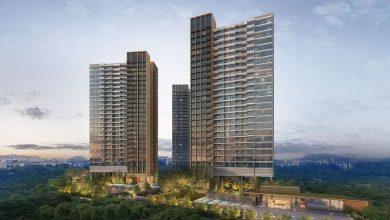Table of Contents
ToggleIntroduction to Los Angeles Zoning Codes
Understanding Zoning Codes:
Zoning codes are a set of regulations established by local governments to control the use of land and structures within their jurisdiction. In Los Angeles zoning codes play a crucial role in shaping the city’s physical environment, determining what types of activities can take place in different areas, and ensuring that development is carried out in a manner that promotes public health, safety, and welfare.
Evolution of Zoning in Los Angeles:
The history of zoning in Los Angeles dates back to the early 20th century when the city experienced rapid population growth and urbanization. In response to concerns about overcrowding, traffic congestion, and incompatible land uses, the city adopted its first comprehensive zoning ordinance in 1921. Since then, the zoning codes have undergone numerous revisions and updates to reflect changes in land use patterns, development trends, and community priorities.
Types of Zoning in Los Angeles
Residential Zoning:
Residential zoning in Los Angeles governs the use and development of areas designated for housing purposes. These zones include single-family residential (R1), multi-family residential (R2, R3, R4), and mixed-use residential/commercial zones. Residential zoning codes dictate factors such as building height, lot coverage, setbacks, and allowable land uses within each zone, with the aim of promoting orderly and harmonious development while protecting the character of residential neighborhoods.
Commercial Zoning:
Commercial zoning regulations in Los Angeles pertain to areas designated for commercial and retail activities. These zones encompass a wide range of uses, including shopping centers, office buildings, restaurants, hotels, and entertainment venues. Commercial zoning codes specify parameters such as building height, floor area ratio, parking requirements, and signage regulations to ensure that commercial development is compatible with surrounding land uses and contributes to the vitality of commercial corridors and business districts.
Industrial Zoning:
Industrial zoning in Los Angeles regulates areas designated for manufacturing, warehousing, logistics, and other industrial activities. These zones are typically located away from residential and commercial areas to minimize conflicts with sensitive land uses. Industrial zoning codes address issues such as noise, pollution, truck traffic, and environmental protection to safeguard the health and well-being of nearby residents and workers while supporting the city’s industrial economy.
Enforcement and Compliance
Zoning Enforcement Process:
The enforcement of zoning codes in Los Angeles is overseen by the Department of City Planning and the Department of Building and Safety. When a potential zoning violation is reported or identified, city inspectors conduct site visits to assess the situation and determine whether the property owner is in compliance with the applicable regulations. If a violation is confirmed, the property owner may be issued a notice of violation and required to take corrective action, such as obtaining permits, removing unauthorized structures, or ceasing illegal activities.
Community Engagement:
Community engagement plays a vital role in zoning enforcement efforts in Los Angeles. Residents, neighborhood councils, and community organizations are encouraged to report zoning violations and participate in the planning and development process. By providing input on proposed zoning changes, development projects, and land use decisions, community stakeholders can help shape the future of their neighborhoods and ensure that development aligns with the needs and priorities of local residents.
Challenges and Controversies
Housing Affordability:
One of the key challenges facing Los Angeles zoning codes is addressing the city’s housing affordability crisis. Zoning regulations that restrict housing density, limit accessory dwelling units (ADUs), and impose stringent parking requirements can exacerbate housing shortages and drive up housing costs. Efforts to reform zoning codes and promote greater housing density, affordability, and diversity are often met with resistance from homeowners, neighborhood groups, and other stakeholders concerned about the impact on property values and neighborhood character.
Equity and Access:
Zoning codes can also contribute to socioeconomic disparities and inequities in Los Angeles. Historically, zoning policies have been used to segregate neighborhoods along racial and economic lines, perpetuating systemic inequalities and limiting access to quality housing, education, and employment opportunities. Efforts to promote fair housing, social equity, and inclusive development require addressing zoning barriers and ensuring that planning decisions prioritize the needs of underserved communities and marginalized populations.
Future Directions
Zoning Reform:
In recent years, there has been growing momentum for zoning reform in Los Angeles and other cities across the country. Advocates argue that outdated zoning codes, restrictive land use policies, and NIMBY (Not In My Backyard) attitudes hinder efforts to address pressing urban challenges such as housing affordability, climate change, and social equity. Calls for more flexible zoning regulations, increased housing density, and greater community input are driving efforts to modernize zoning codes and create more inclusive, sustainable, and equitable cities.
Smart Growth Strategies:
Smart growth principles offer a framework for promoting compact, walkable, and transit-oriented development that supports environmental sustainability, economic vitality, and social equity. By encouraging mixed-use development, prioritizing infill development, and investing in public transportation and infrastructure, smart growth strategies aim to create livable, resilient, and inclusive communities while minimizing the negative impacts of urban sprawl and auto-centric development patterns.
Conclusion
Los Angeles zoning codes are a critical tool for shaping the city’s built environment, managing growth, and balancing competing interests and priorities. By regulating land use, promoting orderly development, and protecting community character, zoning codes help ensure that Los Angeles remains a vibrant, diverse, and livable metropolis. However, addressing the complex challenges of housing affordability, social equity, and environmental sustainability requires ongoing collaboration, innovation, and commitment from policymakers, planners, developers, and community stakeholders. Through thoughtful planning, inclusive decision-making, and proactive engagement, Los Angeles can continue to evolve and thrive as a dynamic and inclusive city for all its residents.




